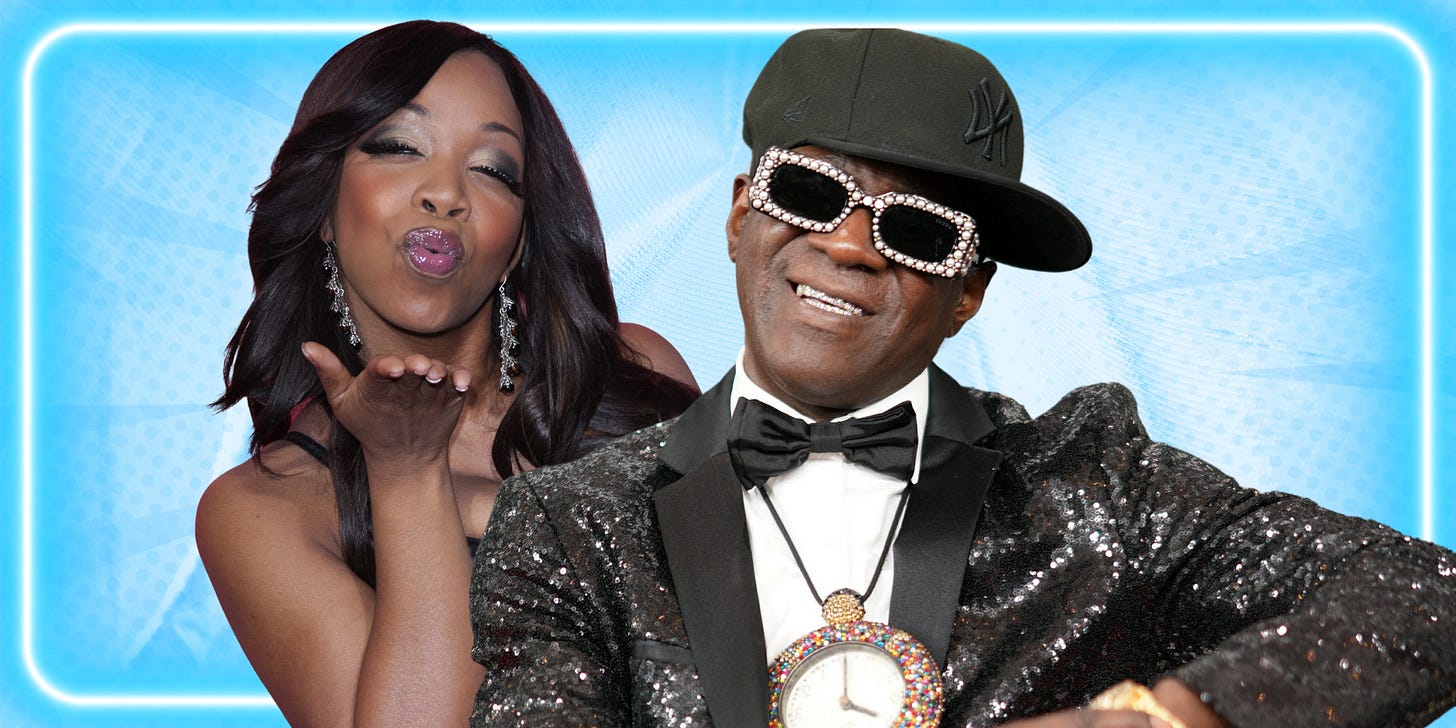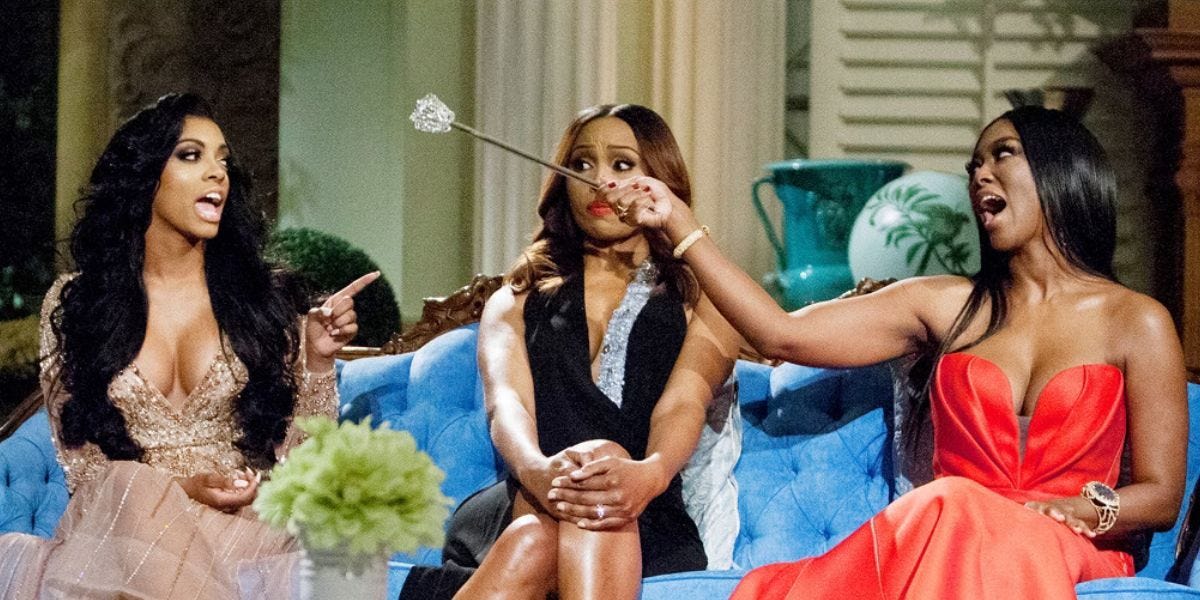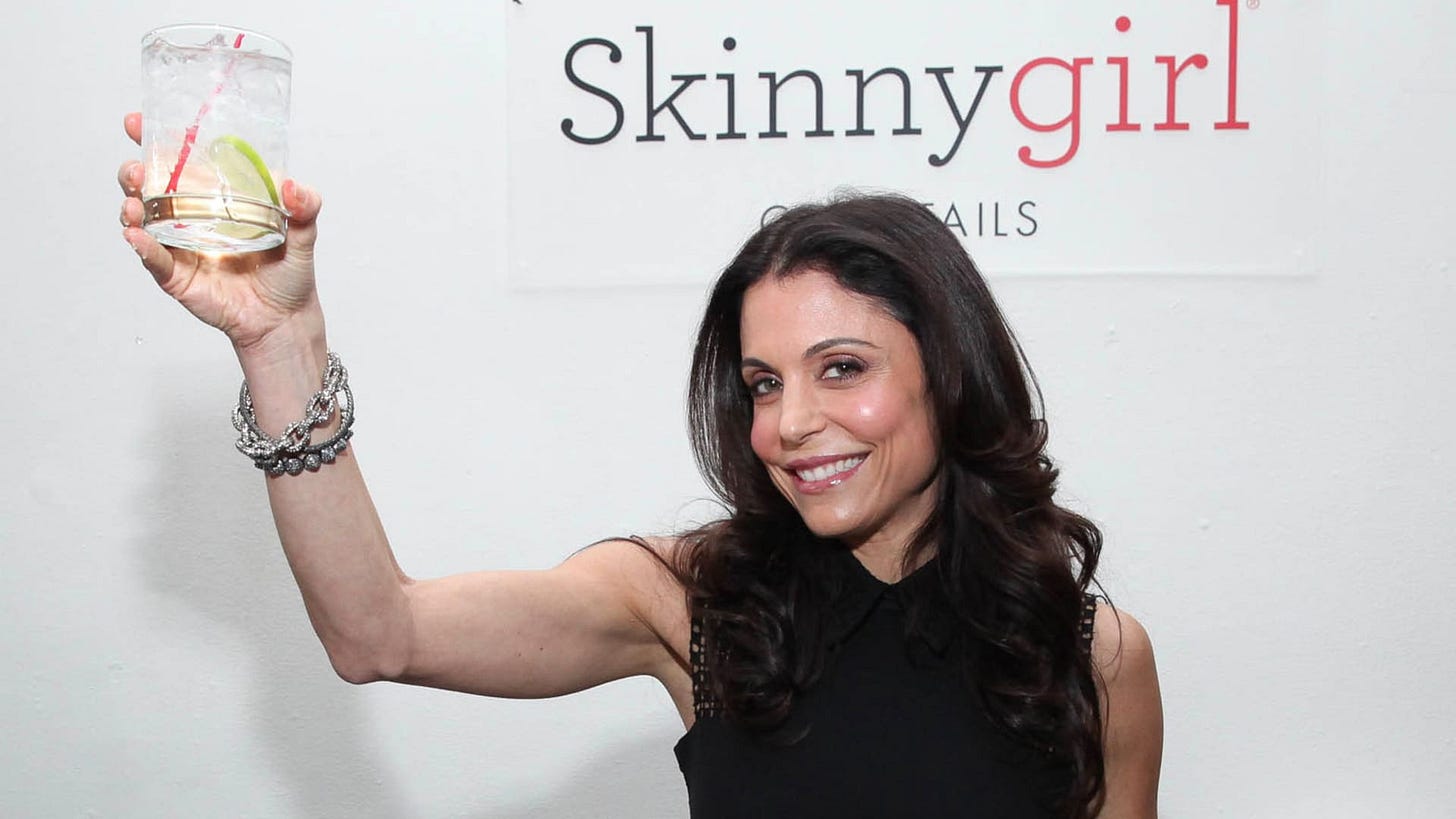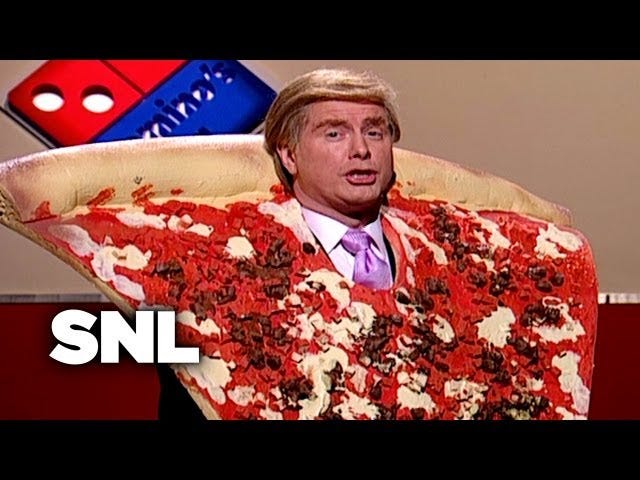What Makes a Great Reality Star?
And what happens when one is the American President?
One of the most common things I hear about unscripted TV from people who do not watch it is, like, “but OMG, isn’t it so trashy? Isn’t it so exploitive?” as if all the participants are innocent dummies who have no idea what will happen when they are perceived at scale, or who are clueless in a context that’s essentially improvisational performance.
But more than ever, being on a reality show is a job, and production teams have been increasingly obligated – including by law – to treat it as such, instead of pushing real people around their little story petri dishes and violating labor and imprisonment laws for drama. This means participants probably now have more knowledge and agency in whatever it is they’re consenting to, and may mean they’re more involved and more collaborative regarding their storylines and what they’re getting out of their experience.
Great reality stars – like Gemma Collins, Tiffany “New York” Pollard, NeNe Leakes or Lisa Vanderpump – know exactly what they are there to do and what outsized version of themselves they are supposed to be. They’re in on their own joke. It’s the viewer who can’t always perceive where the game ends and the truth begins.
Great reality stars:
Want to be famous, not liked. It’s a key distinction! Great reality stars are people so eager to be talked about that they don’t care what’s being said. They’re happy to get a ‘villain arc’, because they know the villain is a major character. Their willingness to perform tends to outshine conventional social notions of dignity, and we love them for that.
Know their own worst qualities, and perform them flagrantly. You know how some budget advertisements are intentionally surreal and annoying? And you’re like, ‘why would they think such an obnoxious ad would be positive for this company,’ until you realize that’s the easiest and cheapest way to be remembered? Same principle.
Are immune to shame. The most successful reality stars are fascinating – and in many ways aspirational – because they tend to show extreme disregard for social norms, or an insistence on forming their own. It’s captivating in a society that values conformity so much! It takes a certain kind of character to have so little filter in front of so many people – never even seeming to feel bad about it! I think as viewers, we’re actually jealous.
Are unconcerned with the truth. Either implicitly or explicitly, consciously or otherwise, a great reality star is the center of their own storyline. Everything they say and do is in service of their narrative performance – when it comes to conflicts, things like facts don’t matter at all. Whether on Survivor or Real Housewives, a reality star is simply telling a story about how they’re already the winner.
Value ‘loyalty’ above all other traits. Most unscripted shows are about alliances or consensus in some form, making relationships within the fiction a higher form of wealth than even wealth. Great reality stars are building a social petty empire, and rebuke treachery like a nation in civil war.
Frequent ventures and lifestyle products. The Kardashian family’s multiple massive cosmetics and clothing brand empires (confession: all my loungewear is SKIMS) enjoy a cyclical relationship with their TV show. The ideal outcome for a Love Island winner is to get to design her own line at a fast fashion boutique. And who can forget powerful ventures like Bethenny Frankel’s SkinnyGirl Margarita Mix, or She by Sheree.
Strategy? What strategy? These characters simply respond to their urges without insight, leaving onlookers to wonder whether they are geniuses pulling on some high-level strings, or are too illucid to be believed, like a computer that beats you at chess by making random moves. Constantly guessing about the character’s position or awareness within her own storyline is part of the viewer’s enjoyment.
So those are a few major traits of great reality stars, but they also describe the Trump administration. Which makes sense, because Donald Trump is another ‘great’ reality star – he understands the formula better than almost anyone. He’s been in the business of unscripted post-truth for his whole career.
Under his American leadership and the cultural chilling effect of his supporters, online society in the West has become increasingly absurd in recent years, all discourse inherently ridiculous and fruitless. It’s all narrative design, or the selective stringing-together of ideas and experiences to create a story that influences people’s values and behavior – regardless of whether that story is true. These days, I feel a lot like a non-consenting participant in an unscripted show, with no strong alliances and no voting power, watching the more powerful players push reality itself around so they can keep winning.
It’s like we’re in a virtual Big Brother house of manipulative and increasingly punitive surveillance capitalism. Performing as an exaggerated or idealized version of yourself on social media is becoming more and more mainstream as a coping mechanism, I think — if you’re disoriented or unsure who’s in charge of the story or what’s true, you’re not alone. With a reality star for president, of course we’re living in an unreal world.
Thanks for reading this series. As always, if you like what I do, the easiest way to support me is to share this article in your networks and recommend this series to friends. Please do subscribe so that you don’t miss a post — I only update every 7-10 days or so! And if you are the kind of very special angel who pays for content you enjoy, I super appreciate your pledges!






